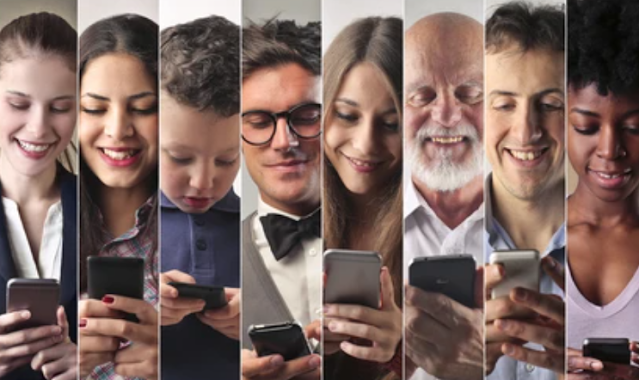Personalization and Mobile Marketing: A Winning Combination
In today's mobile-driven world, personalization has emerged as a powerful tool for marketers to connect with their audience on a deeper level. When combined with mobile marketing strategies, personalization can create a winning formula for driving engagement, enhancing customer experiences, and achieving marketing objectives. This article explores the significance of personalization in mobile marketing and how businesses can leverage this combination to deliver tailored experiences that resonate with their target audience.
The Power of Personalization in Mobile Marketing:
Enhanced User Engagement:
Personalization in mobile marketing goes beyond addressing recipients by their first names. It involves tailoring content, offers, and experiences based on user preferences, behaviors, and demographics. By delivering relevant and personalized content to mobile users, businesses can capture their attention, increase engagement rates, and foster deeper connections.
Improved Customer Experiences:
Mobile devices are personal and intimate tools that consumers carry with them throughout the day. By personalizing mobile marketing efforts, businesses can create experiences that align with customers' needs and preferences. This can include personalized product recommendations, location-based offers, or targeted messaging that addresses individual pain points. Such personalized experiences enhance customer satisfaction, loyalty, and advocacy.
Higher Conversion Rates:
Personalized mobile marketing campaigns have the potential to drive higher conversion rates. By tailoring messages and offers to individual preferences, businesses can deliver more relevant content that resonates with mobile users. This relevancy increases the likelihood of conversions, whether it's completing a purchase, signing up for a service, or downloading an app. Personalized calls-to-action and recommendations can significantly impact conversion rates.
Strategies for Personalization in Mobile Marketing:
Collect and Leverage User Data:
To personalize mobile marketing campaigns effectively, businesses must collect and leverage user data. This can include demographic information, browsing behaviors, past purchase history, or preferences expressed through interactions with the brand. Utilize data capture techniques such as mobile app analytics, website tracking, surveys, or preference centers to gather valuable insights.
Segment Your Audience:
Segmentation is key to delivering personalized experiences. Divide your audience into distinct segments based on common characteristics, interests, or behaviors. This allows for targeted messaging and offers that align with each segment's preferences. Segmentations can be based on factors such as location, age, purchase history, or engagement levels. Leverage automation tools to deliver personalized messages at scale.
Dynamic Content Customization:
Utilize dynamic content customization to deliver personalized content within mobile marketing campaigns. This involves dynamically adapting the content based on user attributes or behaviors. For example, display different product recommendations for each user based on their browsing history or offer exclusive discounts based on their loyalty status. Dynamic content customization ensures that each user receives content tailored specifically to their needs and interests.
Location-Based Targeting:
Leverage location-based targeting to deliver personalized experiences to mobile users based on their geographic location. Use geofencing or beacon technology to send location-specific offers, store information, or event notifications. Location-based personalization helps businesses connect with users in real-time, providing relevant information and offers that are contextually valuable.
Utilize Push Notifications and In-App Messaging:
Push notifications and in-app messaging are powerful tools for delivering personalized messages directly to mobile users. Use push notifications to send targeted and timely updates, promotions, or reminders based on user preferences or behaviors. In-app messaging allows for personalized recommendations, support, or feedback gathering within the app. Both these channels facilitate personalized interactions and enhance user engagement.
Case Studies:
Spotify:
Spotify, a music streaming platform, utilizes personalization in its mobile app to deliver tailored music recommendations. By analyzing user listening habits, Spotify creates personalized playlists and suggestions that align with each user's unique taste. This personalization has contributed to increased user engagement, longer app usage, and higher customer satisfaction.
Amazon:
Amazon leverages personalization in its mobile shopping app to deliver a personalized shopping experience. The app recommends products based on users' browsing and purchase history, as well as preferences expressed through interactions with the platform. This personalized approach has driven higher conversion rates and customer loyalty, as users feel understood and catered to.
Conclusion:
Personalization and mobile marketing form a winning combination for businesses looking to create meaningful connections with their audience. By leveraging user data, segmenting the audience, and utilizing dynamic content customization, businesses can deliver personalized experiences that drive engagement, enhance customer experiences, and increase conversion rates. Case studies from Spotify and Amazon highlight the power of personalization in mobile marketing. Embrace personalization in your mobile marketing strategies to unlock its potential and create memorable experiences that resonate with mobile users, ultimately driving business growth and customer loyalty.











